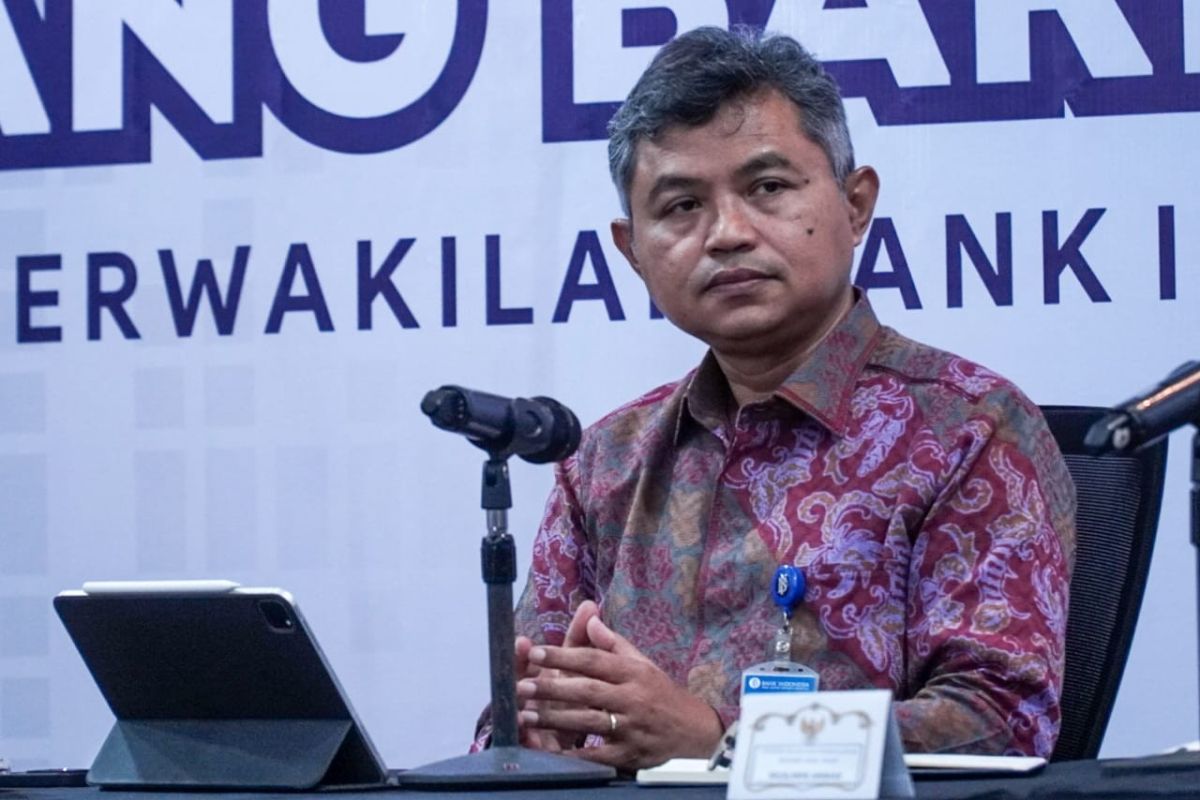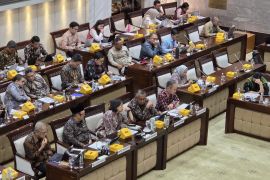"In the second quarter of 2023, East Java's economic performance showed improvement, in line with better consumer confidence," Head of East Java Representative Office of BI Doddy Zulverdi said in Surabaya on Wednesday.
The progress of the region's economy is marked by the Prompt Manufacturing Index (PMI), which capped at 50 percent, positive trends in retail, an improved prognosis in food and horticulture production, as well as progress in the performance of priority sectors, he added.
Zulverdi also said that the achievement is coupled with the inflation rate in the cities and district, which on May declined to 5.02 percent y-o-y, as it was recorded at 5.35 percent y-o-y in April 2023.
He expected that the decline could be maintained to meet the national inflation target, albeit it would be more difficult as Eid al-Adha draw near.
He also highlighted a slowdown in April 2023, compared to the previous month regarding the performance of East Java bank intermediation, particularly on corporation and household credits.
"In regards to progress of the payment system, East Java BI consistently pushes for digitization of payment systems, among which include e-commerce transactions and electronic money that grew positively," he noted.
The people's interest in using non-cash transaction is also in line with growing adoption of QRIS, Zulverdi pointed out. As per April 2023, East Java reported a 28.01 percent and 43.6 percent for 2023 targets on users and QRIS transaction volumes, respectively.
"To achieve the target until the end of 2023, BI will push for massive literacy education for people, including on innovative features in QRIS, such as withdraw and transfer, as well as cross-country QRIS, which has been implemented with Thailand and Malaysia," he stated.
He also said that the East Java economy is projected to grow at 4.6 to 5.4 percent y-o-y in 2023, with a declining consumer price index that draws near to the range of the target.
Zulverdi noted the factors which contribute to the controlled inflation in 2023, which include control over plant disease and insects, thereby ensuring better harvests; improved management of foot and mouth disease and lumpy skin disease in animals; end of effects from oil price spikes in September 2022; as well as decreasing global commodity prices, particularly that of energy.
"Even though the economic performance is moderate, there is still (opportunity) to grow by maintaining household consumption, promoting investment, and optimizing the processing industry," he added.
Related news: Economic recovery uniform across Indonesia: Minister Indrawati
Related news: Global economic growth to reach 2.8 percent in 2024: BI
Translator: Willi Irawan, Mecca Yumna
Editor: Azis Kurmala
Copyright © ANTARA 2023












